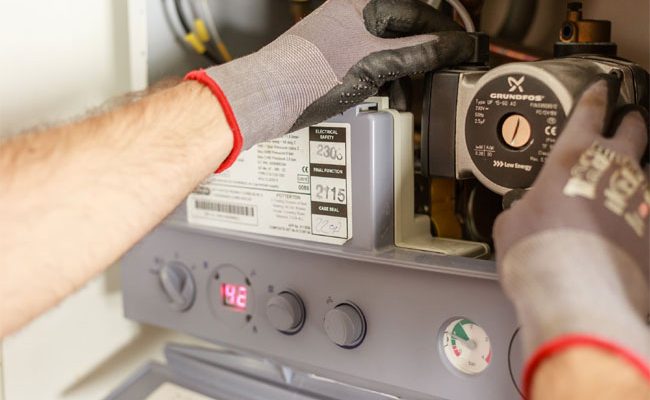
Plumbing issues can arise without warning and often do when you least expect them. In such moments, you don’t want to be caught off-guard – on the contrary, you should be prepared!
Good news! You can take specific preventive measures that will both minimize potential plumbing problems and help you handle them like a pro when they do crop up. One such dependable solution is Dan’s Plumbing.
In this blog post, we offer ten invaluable plumbing tips every homeowner should know. These guidelines, supported by the expertise of Dans Plumbing, not only steer clear of costly repairs but also improve your overall home maintenance practice. So let’s get started!
Know Where Your Main Water Shutoff Valve Is Located
The first rule of thumb when it comes to plumbing is knowing how to shut off the water supply in case of an emergency or a simple repair job. Locate the main water shutoff valve as soon as possible after moving into a new house. This valve is usually situated outside your home or inside the garage or utility room for easy access.
Maintain Your Water Heater Regularly
Your water heater is an essential component of your plumbing system and requires proper maintenance to ensure its longevity and efficient performance. It is advisable to flush the tank annually – this prevents sediment buildup at the unit’s bottom, which could potentially lead to premature failure or reduced efficiency.
While conducting regular maintenance tasks (such as checking for infrequent leaks or faulty valves), it’s also crucial to familiarize yourself with the unit’s operational features. This understanding allows you to quickly diagnose any malfunction that may occur.
Avoid Overusing Drain Cleaners
Chemical drain cleaners may seem like an easy fix for clogged drains, but they can do more harm than good when used excessively. These cleaners corrode your pipes over time, eventually leading to leaks and further damage. Rather than relying on chemicals, invest in a high-quality plunger or plumbing snake (also known as an auger) for a safer and effective solution to handle most clogs.
Consider Installing Water Pressure Regulators
High water pressure can put your pipes at risk. A water pressure regulator helps maintain safe levels (between 40 and 85 psi) within your home’s plumbing system, protecting them from potential damage caused by excessive pressure. An added perk of regulating the pressure is that it saves on water usage – a win-win!
Stay Vigilant When Using Garbage Disposals
While garbage disposals are handy tools in the kitchen, using them irresponsibly could result in unforeseen consequences like blocked drains or damaged blades. Avoid disposing of items such as fibrous foods (e.g., celery), coffee grounds, fruit pits, grease/fats/oils, and eggshells down the disposal unit.
Run cold water while using the machine to help flush waste through smoothly; continue running for a few seconds after turning off the disposal—this practice aids in rinsing away any residual debris.
Preventative Maintenance is Key
Taking care of small maintenance tasks can help prevent large-scale plumbing issues down the line. Regularly inspect exposed pipes for signs of wear or damage; watch out for slow-draining sinks or tubs – issues like these can often be addressed promptly with minimal effort. A little investment in time and proactive planning saves you from expensive repairs later.
Prepare Pipes for Winter
As a homeowner, one of the worst plumbing nightmares is waking up to frozen or burst pipes on a cold winter morning. Prevent this by insulating any exposed pipes in uninsulated areas, disconnecting outdoor hoses when temperatures drop, and sealing gaps around windows or doors near piping.
A smart precautionary measure involves keeping your home’s temperature at or above 55°F when away during winter months—this practice prevents water from freezing within the pipes.
Educate Your Household on Plumbing Basics
Ensure all household members are aware of essential plumbing guidelines—this diminishes potential problems caused by careless usage.
Teach all family members how to turn off the main water valve in case of an emergency, instruct them about proper garbage disposal use and enlist their help in keeping an eye out for possible plumbing maintenance issues.
Tackle Small Repairs Yourself
Pipeline repair jobs can cost you hundreds of dollars just for a service call. Picking up basic plumbing skills empowers you to tackle minor tasks without calling in professionals every time – this saving adds up!
Familiarize yourself with standard tools used for repairs (e.g., pipe wrenches, plumbers tape) and keep them handy at home should these minor projects arise.
Recognize When to Call a Professional
While self-reliance is crucial, know when a plumbing issue warrants calling in a professional. Some problems (such as persistent leaks or damaged sewer lines) require the expertise of trained and licensed plumbers—attempting to repair these issues on your own can result in further damage or even jeopardize your home’s safety.
Conclusion
Being proactive with plumbing maintenance not only prevents costly repairs but also enhances the overall health and longevity of your home’s plumbing system. Use these tips to stay ahead and well-informed as a homeowner ready to face any plumbing challenge that comes your way! Remember—for significant issues beyond your skill set, enlist the help of professionals.
Leave a Reply